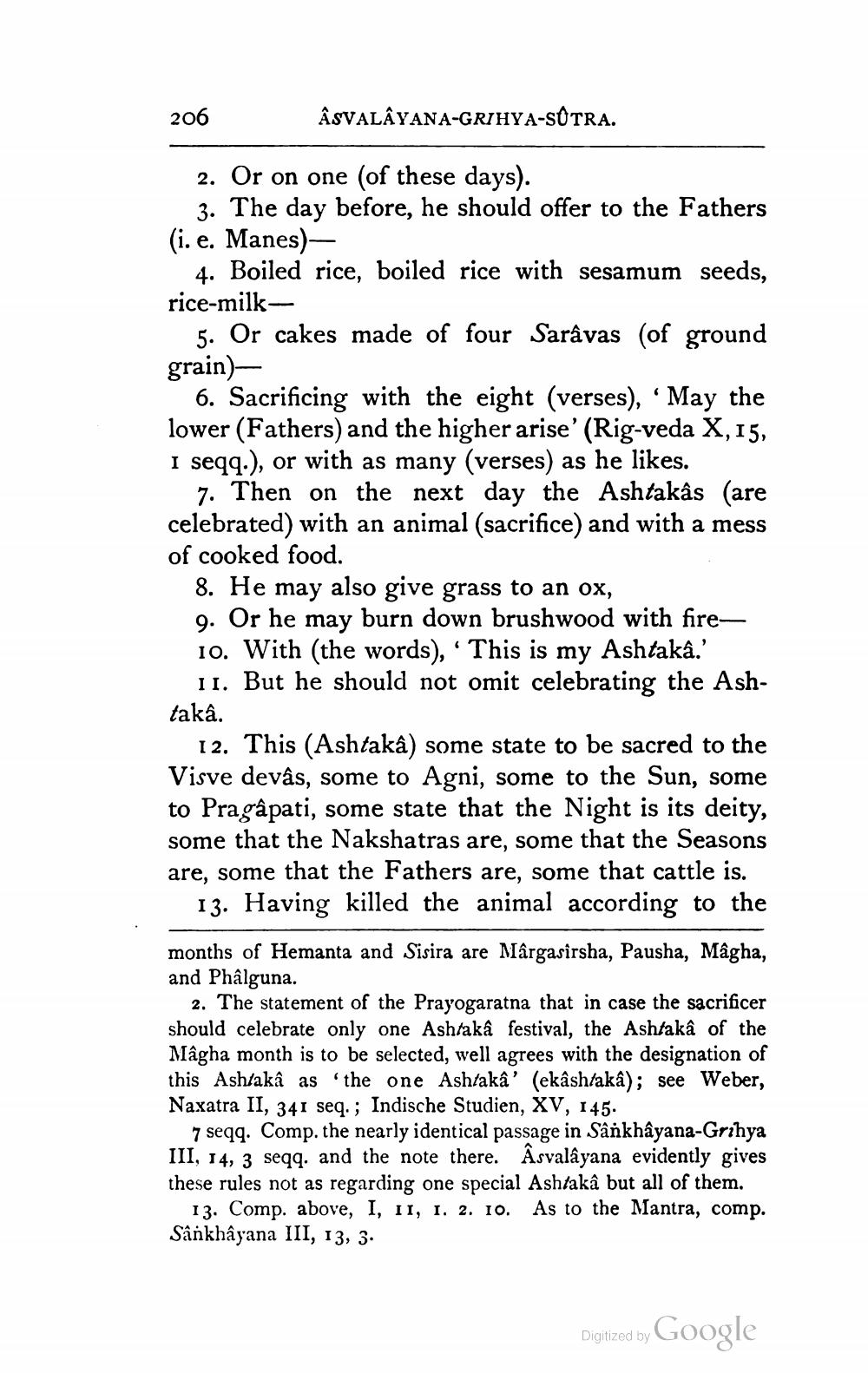________________
206
ÂSVALÂVANA-GRIHYA-SOTRA.
2. Or on one (of these days).
3. The day before, he should offer to the Fathers (i. e. Manes) -
4. Boiled rice, boiled rice with sesamum seeds, rice-milk
5. Or cakes made of four Sarâvas (of ground grain)
6. Sacrificing with the eight (verses), “May the lower (Fathers) and the higher arise' (Rig-veda X, 15, I seqq.), or with as many (verses) as he likes.
7. Then on the next day the Ashtakâs (are celebrated) with an animal (sacrifice) and with a mess of cooked food.
8. He may also give grass to an ox, 9. Or he may burn down brushwood with fire10. With (the words), “This is my Ashtaka.'
11. But he should not omit celebrating the Ashtaka.
12. This (Ashtakâ) some state to be sacred to the Visve devâs, some to Agni, some to the Sun, some to Pra gâpati, some state that the Night is its deity, some that the Nakshatras are, some that the Seasons are, some that the Fathers are, some that cattle is.
13. Having killed the animal according to the
months of Hemanta and Sisira are Mârgasirsha, Pausha, Mâgha, and Phâlguna.
2. The statement of the Prayogaratna that in case the sacrificer should celebrate only one Ashtaka festival, the Ashtakâ of the Mâgha month is to be selected, well agrees with the designation of this Ashtakâ as the one Ashtakâ' (ekâshtaka); see Weber, Naxatra II, 341 seq. ; Indische Studien, XV, 145.
2 segg. Comp. the nearly identical passage in Sankhâyana-Grihya III, 14, 3 seqq. and the note there. Asvalâ yana evidently gives these rules not as regarding one special Ashtakâ but all of them.
13. Comp. above, I, II, 1. 2. 10. As to the Mantra, comp. Sankhâyana III, 13, 3.
Digitized by Google




